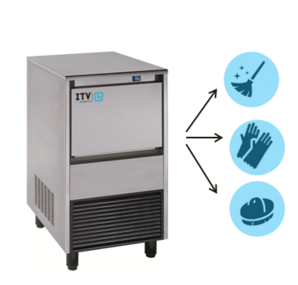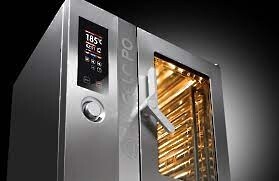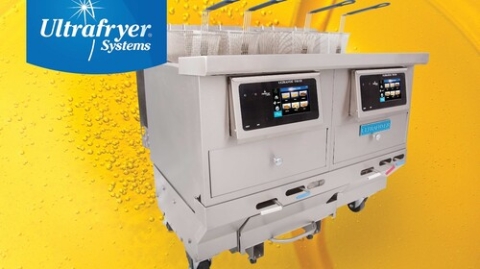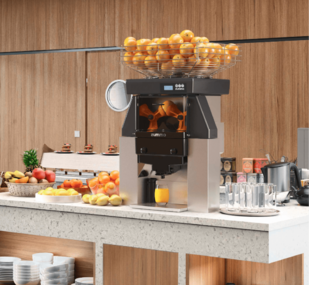Why Filter Your Deep Fryer: Better Food & Better Profits!
Sep 16, 2021 Kitchen Equipment
When it comes to the foodservice and grocery industries in Canada, one thing remains certain; premium quality fried products will always be in demand. This is why the deep fryer is an absolute staple in the commercial kitchen today. Just think about all of the different fried foods we enjoy: fried chicken, deep fried pickles, fried shrimp, chicken wings, French fries, onion rings, calamari, fish & chips, and donuts. And that’s just to name a few!
No matter what part of Canada you live in, you will likely find most of these fried foods and more at a restaurant or grocery store near you. Therefore as a restaurateur or grocer, you most likely have a least one deep fryer vat in your kitchen, if not several.
While it doesn't take a lot to make fried fish or onion rings taste delicious, it also doesn't take much for them to taste inedible either. The easiest way to ensure that fried foods remain tasting delicious, is to ensure that your fryer oil is clear and filtered. To ensure the flavor of fried food is never compromised and the cost of shortening remains low, it's absolutely necessary to filter your oil!
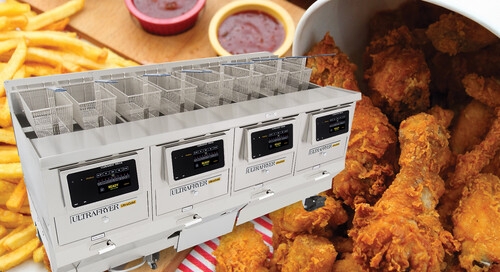
Two Reasons to Filter Your Deep Fryer Oil!
There are TWO main reasons why you should always focus on filtering your fryer oil & shortening!
- Oil Filtration Improves Food Quality and Taste
How can oil filtration improve or preserve the quality and taste of your food? First, remember that oil is food too! If the oil or shortening you are cooking in is old and used, this will affect everything the oild touches. You can start with the best quality product, but the quality of your food is only as good as the quality of your oil.
As solids and wastes such as breading, batter, and proteins build up on your oil over time, any foods that you fry in the old oil will pick up the tastes and textures of these leftover bits. The older the unfiltered oil, the more likely the quality of your foods will diminish
Burnt, degraded oil imparts bad flavours and aromas into fried foods. It is also less efficient than clean oil. When you fry with oil that is past its prime, the breading or the crust on the food does not crisp as quickly, and the food absorbs more of the oil. Rather than a crispy, golden-brown product, you end up with a darkened, greasy mess. The simple equation here is cleaner oil equals better food, which is why you want to filter your oil regularly.
- Oil Filtration Guarantees Cost Savings and Reduces Waste
Depending on how much you use your deep fryers, fryer oil and shortening can easily make up a significant portion of your annual food cost. As an example, let us consider a commercial kitchen that does not filter their oil and has to replace it twice a week. For one fifty-pound fryer, at an oil cost of $1.00 per pound, that equates to $100 a week to operate that fryer. Over the course of a year, that comes out to $5,200 a year for ONE fifty-pound fryer!
However, if your restaurant or hot foods department proactively and frequently filter your oil or shortening, you can reduce the operating cost of a deep fryer by 35% or more. For a restaurant that operates four fifty-pound fryers, using the same numbers, a 35% reduction in operating cost comes out to an annual savings of $7,280!
Restaurants that filter their oil realize these kinds of cost savings because oil filtration extends the life of your oil. With regular to heavy use, your oil might last three days at best without filtration. With filtration, you can easily stretch that to an average of six or seven days. As we are well aware in the restaurant industry, managing your food cost is essential for profitability. If you operate fryers in your restaurant or hot foods department, and you are not filtering your oil, you are literally throwing money away.
- The UltraFryer and Oil Filtration
When it comes to deep fryers and oil efficiency, there is no better product on the market than the UltraFryer. Not only does the UltraFryer have the fastest recovery time in the industry which allows for more production, but the UltraFryer heat exchanger also helps extend shortening life by limiting temperature spikes to produce quality cooked product while maintaining shortening integrity.
Also, Ultrafryer recently introduced their new UltraClear filtration technology which has reduced the amount of “plumbing parts” associated with oil filtration and at less cost. The unit is simply equipped with an on/off switch and incorporates easy pump removal for servicing. With an UltraFryer shortening management system, you can easily expect nine days of use from a single vat.
For more information on UltraFryer model options, click this link!

